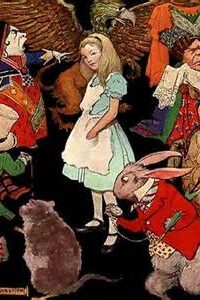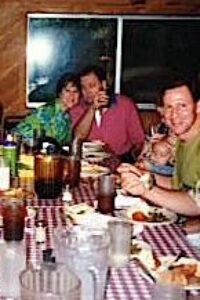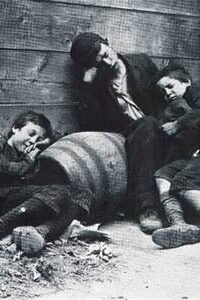“People never touched one another. The custom had become obsolete, owing to the Machine.”
E. M. Forster
In my eclectic reading habits I frequently stumble upon subjects and stories that surprise me. I love to be surprised. I was reading an essay in The New Yorker that referenced a short story by E. M. Forster entitled “The Machine Stops.” Yes, that Forster of “A Room with a View” and “A Passage to India” fame. My initial surprise came when I read that Forster’s short story was first published in the Oxford and Cambridge Review in November of 1909.
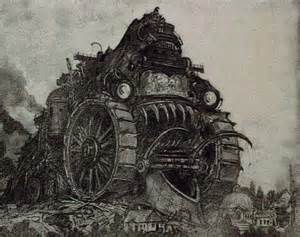 “The Machine Stops” is a futuristic tale. It might fall into the science-fiction or fantasy genre in today’s publishing pigeon-hole mentality. There are only two characters: a mother, Vashti, and her son, Kuno. By decree of the invisible Central Committee who had designed and set in motion this omnipotent and omnipresent Machine, all babies were put into public nurseries. “Parent’s duties,” said the Book of the Machine, “cease at the moment of birth.” Vashti could visit Kuno in the nursery until the Machine assigned him a room on the other side of the earth. After that the only means of communication was through electronic telephones with plate screens.
“The Machine Stops” is a futuristic tale. It might fall into the science-fiction or fantasy genre in today’s publishing pigeon-hole mentality. There are only two characters: a mother, Vashti, and her son, Kuno. By decree of the invisible Central Committee who had designed and set in motion this omnipotent and omnipresent Machine, all babies were put into public nurseries. “Parent’s duties,” said the Book of the Machine, “cease at the moment of birth.” Vashti could visit Kuno in the nursery until the Machine assigned him a room on the other side of the earth. After that the only means of communication was through electronic telephones with plate screens.
The populations of the earth lived underground in elaborate honeycomb system with individuals housed in small, hexagonal rooms. Every need was met inside the room. Few ventured to the “surface of the earth” except for a rare flight on an airship with the sky windows concealed by blinds of pliable metal. “When the airships had been built, the desire to look direct at things still lingered in the world,” writes Forster. But over time the “civilized and refined” found it discomforting to view natural sights such mountains, oceans, woodlands, night and day, stars and planets.
At the beginning of the story Kuno has called his mother from the southern hemisphere and asked her to take a flight to the northern hemisphere so he could tell her something important. The idea of flying in an airship was frightening enough to Vashti, but it was even more terrifying to speak to someone in person, even her son. The advance technology of this brave new world had made face-to-face contact obsolete.
“It is contrary to the spirit of the age,” Vashti asserted, and Kuno countered that human contact was “contrary to the Machine.” Public gatherings were abandoned for the insular convenience of multi-technical connections with audiences through screens. Knowledge was passed through lectures on screens from lectors who gathered their information from other lectors who had sourced their learning from the Machine’s book of knowledge. No personal experience was required in the gaining of knowledge. “Vashti was seized with the terrors of direct experience,” Forster writes.
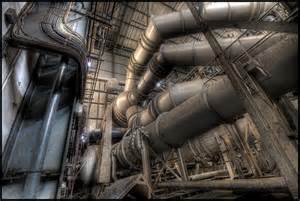 The communication systems, the illumination, the food and drink, the temperature of the filtered air, all requirements to sustain human life in one’s personally-designed abode was provided by the Machine and its Central Committee. And whenever Vashti was compelled to worship something, she would clasp the Book of the Machine in her hands (a copy was in every room), reverently whisper, “O Machine! O Machine!” and raise it to her lips, kiss it three times, and three times incline it to her head to ignite the delirium only true worship can bring. In my mind, I saw the opening scene of “Monty Python and the Holy Grail” with the strolling monks chanting in Latin, and on cue, slashing their prayer books against the forehead.
The communication systems, the illumination, the food and drink, the temperature of the filtered air, all requirements to sustain human life in one’s personally-designed abode was provided by the Machine and its Central Committee. And whenever Vashti was compelled to worship something, she would clasp the Book of the Machine in her hands (a copy was in every room), reverently whisper, “O Machine! O Machine!” and raise it to her lips, kiss it three times, and three times incline it to her head to ignite the delirium only true worship can bring. In my mind, I saw the opening scene of “Monty Python and the Holy Grail” with the strolling monks chanting in Latin, and on cue, slashing their prayer books against the forehead.
Kuno will not tell his mother his story through the Machine and he will not come to her. She must come to him. In her flight from one hemisphere to the other, Vashti spends a few uneasy hours of slumber only to be awakened by an unfamiliar glow through a defect in the blind over the window. The beams of the rising sun so unnerve her that Vashti recoils, and when she puts out her hand to steady herself, she touches a fellow passenger who exclaims in horror at this affront, “How dare you! Your forget yourself!”
When Vashti is reunited with her son she complains about her “terrible journey that greatly retarded the development of my soul. The sunlight almost touched me.”
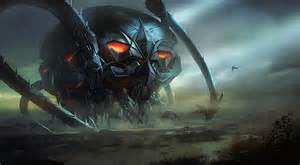 Kuno horrifies his mother by telling her that the Central Committee threatened him with “Homelessness,” and he could not tell her such a thing through the Machine. Homelessness meant expulsion through an underground vomitory and deposited upon the surface of the earth where Kuno would be exposed to the natural elements. It meant death.
Kuno horrifies his mother by telling her that the Central Committee threatened him with “Homelessness,” and he could not tell her such a thing through the Machine. Homelessness meant expulsion through an underground vomitory and deposited upon the surface of the earth where Kuno would be exposed to the natural elements. It meant death.
When the visibly shaken Vashti asks why he would take such a risk, Kuno explains, “We have lost a part of ourselves. I determined to recover it.” And the first thing he had to do was “recapture the meaning of ‘Near’ and ‘Far.’”
When your whole view of the world is what you see on your screen a concept of Near and Far is the first thing to go.
Kuno had dared to venture to the surface of the earth on his own. He had not asked permission from the Central Committee and found his own way out. “All the things I had cared about and all the people I had spoken to through the tubes (screens) appeared infinitely little,” Kuno explains. So he exits his room, makes his way to the surface of the earth, experiences the natural world and encounters others “hiding in the mists.” The fact that he was only threatened for his foolishness was a sign of the Machine’s mercy, Vashti tells her son.
“I prefer the mercy of God,” Kuno replies.
So “How ya gonna keep ‘em down of the farm after they’ve seen Paree’”? Vashti knows that such “direct observation” will not end well for her son. “Beware of first-hand ideas,” comes the warning. Such ideas are “physical impressions produced by love and fear.” In other words, when the Machine offers you the cool aid and you drink it, one is numbed to such pesky human emotions and individual ambition. All creativity and human emotion must be derived from and devoted to the Machine and its Book.
 The story does not end well for those who have attached themselves to the Machine, and if one is motivated to read the story, the language can be a bit ponderous. However, the prescient qualities of the science-“fiction” cannot be denied. As time progressed in the story and the efficiency of the Machine increased the curiosity and intelligence of man decreased. “Humanity, in its desire for comfort, had over-reached itself,” and had become absorbed into the progress of the Machine.
The story does not end well for those who have attached themselves to the Machine, and if one is motivated to read the story, the language can be a bit ponderous. However, the prescient qualities of the science-“fiction” cannot be denied. As time progressed in the story and the efficiency of the Machine increased the curiosity and intelligence of man decreased. “Humanity, in its desire for comfort, had over-reached itself,” and had become absorbed into the progress of the Machine.
The ultimate goal of the Machine was to free the individual “from the taint of personality,” limiting all human-to-human contact and channeling the need to touch and be touched through its system of screens, tubes, and wires. Forster’s cautionary tale challenges us not to assign demigod status to those who seek to electronically unify the planet and to look warily at the future of our technology. What may seem like personal empowerment at our fingertips may become our undoing. Call me a curmudgeon, but I’m happy to keep company with old E. M.



